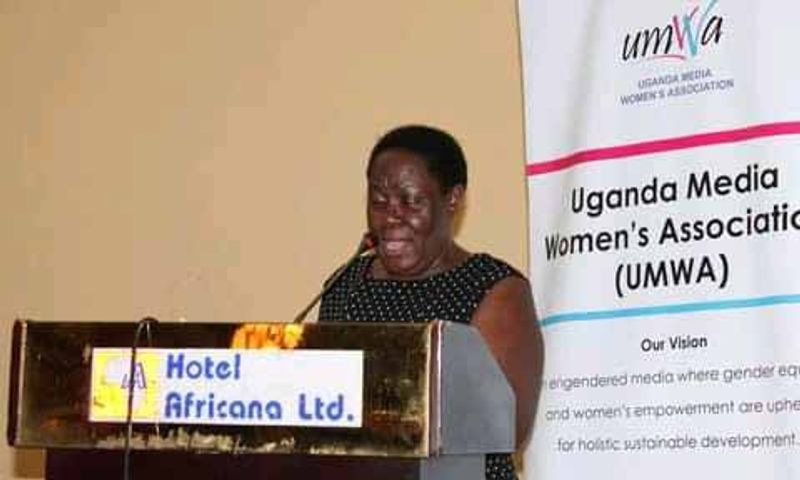

UMWA Executive Director Margaret Ssentamu
The prevalence of Gender-Based Violence in many Ugandan communities despite the existence of numerous laws has been blamed on deep-rooted cultures that have allowed the vice to go unreported and unpunished.
According to Dr Emily Comfort Maractho, the Deputy Chairperson of Uganda Media Women’s Association (UMWA), Gender based violence remains a problem because of deeply rooted social cultural practices that consider women as properties or subservient to men especially in households.
“GBV is very much a social issue that is also connected to the economic way of life and that social issues are very deeply entrenched in society that they don’t easily go away because there is a law,” said Maractho who adds that the law just exists to ensure that people get remedy or justice but not necessarily detar the vice.
However, UMWA has embarked on trying to change the narrative around GBV by focusing on highlighting the plight of survivors and victims of Gender Based Violence through effective story telling.
Over the coming months, UMWA will conduct training sessions for journalists with the view to imparting skills on how to report about it.
UMWA Executive Director, Margret Ssentamu says they hope to retool journalists to embrace gender based violence reporting proactively and responsibly which is not the case as per the current standings.
“We believe and expect that there will be increased knowledge on awareness about the importance of reporting about GBV in a more pro-active way and also responsibly and if that has been actualized, it means that the general public would also fully digest and appreciate information regarding GBV,” she said.
This initiative aims at not only training journalists but also editors, designers, producers starting with Kasese on May 17 before training other districts of Tororo, Gulu, Kitgum and Kampala
“We want to train Journalists upcountry because we see most of the GBV stories come from those regions but these journalists need more capacity to contextualize these issues,” added Ssentamu.
“There are different legal provisions but journalists don’t want to read, and this makes them unable to internalize issues so they can make authorities accountable to most of these things,” Ssentamu added.
“Even the general public is not aware of these provisions. That is why we want to equip journalists so that they create awareness,” she added.
According to Dr Maractho, the legal provisions largely help to deter physical GBV. But other silent forms of GBV take place behind the walls and in public spaces, hence need for trainings that will hight those forms.
“Even when there’s a law, there has to be a continuous effort to sensitize people about their change in behavior because behavior change doesn’t just happen because there is law, it happens because people can see the relevancy of changing their lives,” she said.
The trainings by UMWA are supported by the UN Women and will run under the theme: “Enhancing the capacity of media in reporting about Gender Based Violence, proactively/responsibly.”














Vicent Nathan Lusambya
Leave a Comment
Your email address will not be published.